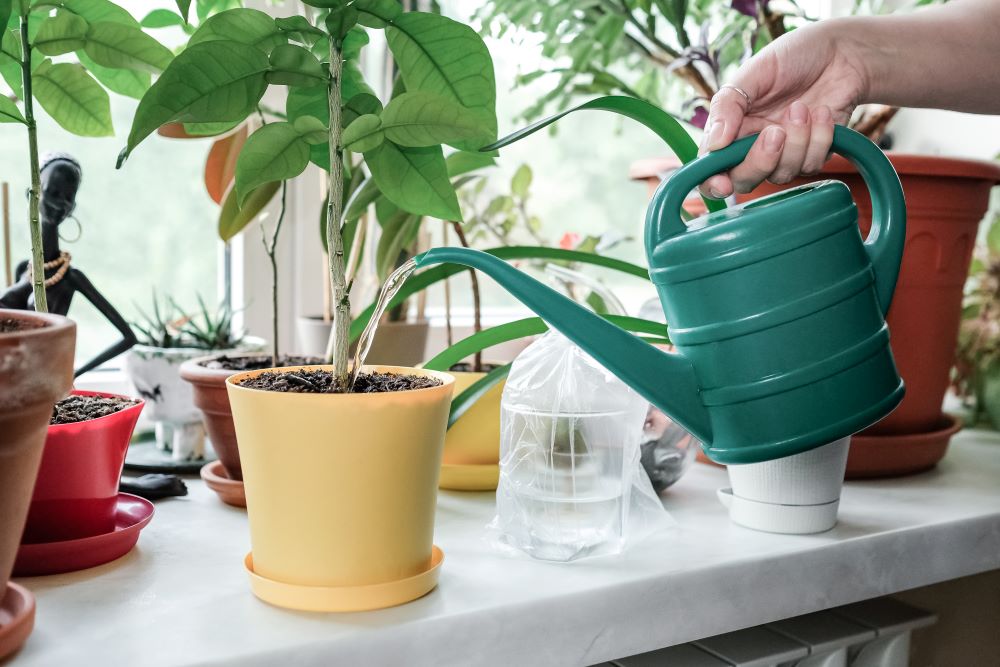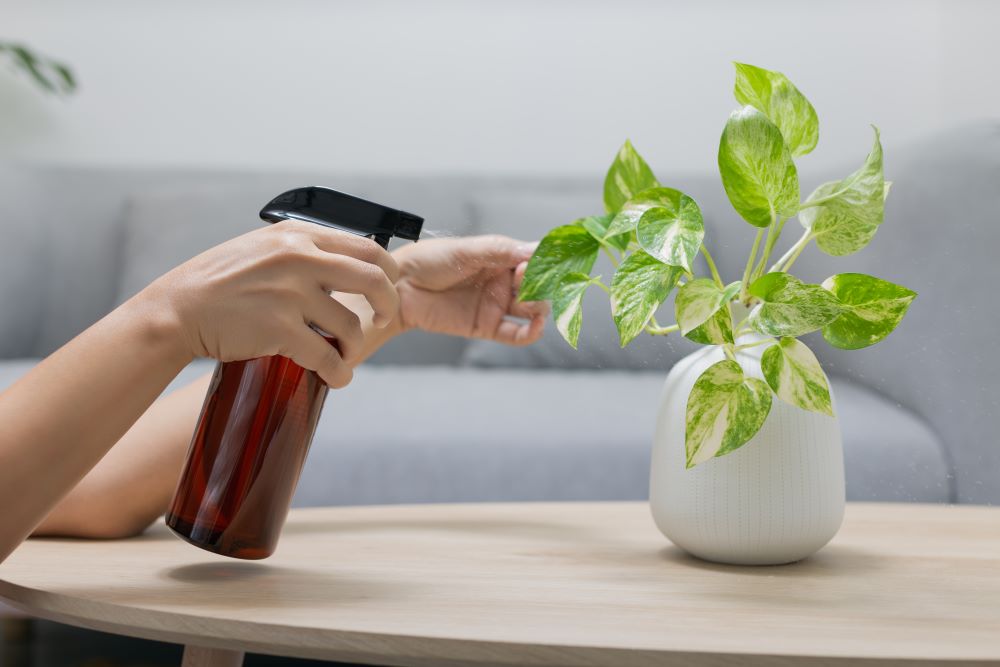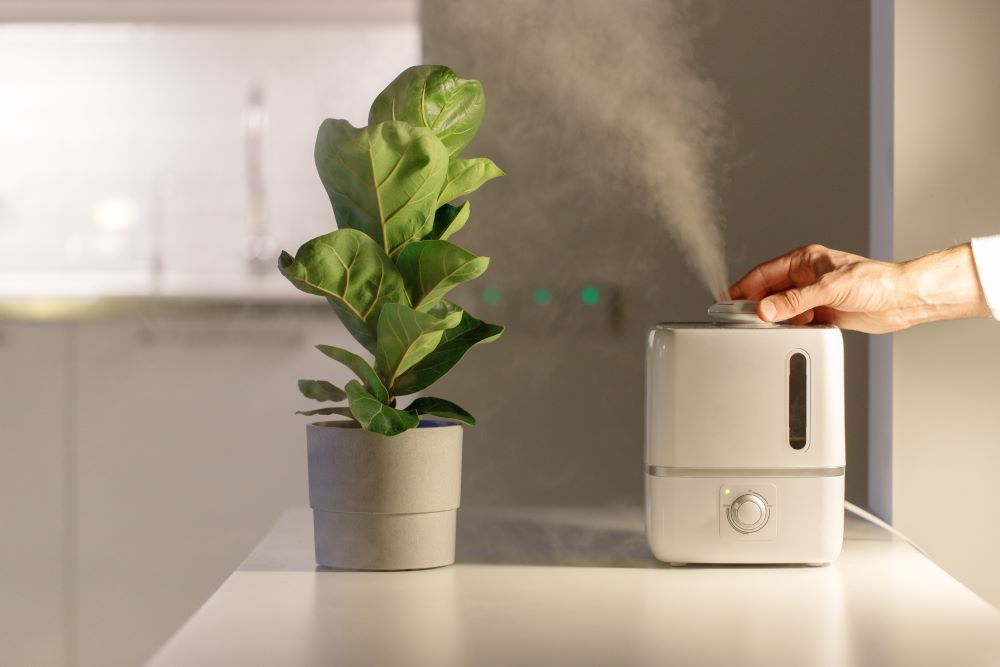Gardening Tips: How To Grow Healthy Houseplants
Houseplants can add a new level of color and life to any room of your house. While houseplants are typically smaller and easier to maintain than a full outdoor garden, they still require regular care and consideration. Not sure where to start? Here are some tips on how to grow healthy houseplants.
Give Your Houseplants The Right Amount Of Sunlight And Water

The most important step in growing healthy houseplants is to properly care for them. Make sure to plant them in small planters with drainage holes to allow for water to seep through. Drenched soil can result from over watering, which can damage your plant and ultimately kill it.
Only water your houseplants when the soil is completely dry. You can check this by placing your finger two inches into the soil. If it’s still damp, it’s not time to water it yet. If it feels dry that deep into the soil, you’ll know that it’s time to water.
The placement of your houseplant is also important because some plants may require more or less sunlight than others. Windowsills are ideal for plants who need the most direct sunlight. Make sure to regularly rotate the plant so each side gets the same amount of sunlight.
Conduct Continuous Pest Control To Keep Your Houseplants Healthy

Pests are sometimes not preventable and will infiltrate most types of houseplants. While these unwanted pests can cause an issue with your houseplants, you can keep them under control with a homemade pesticide mixture.
Make your own natural pesticide with ingredients already found in your home. Mix liquid soap with water (measure accordingly: 1 teaspoon of soap per 1 liter of water). Put this mixture in a spray bottle to use when needed. Spray on the plant right when you see any bugs – soap kills bugs instantly on contact.
Keep in mind that you might not completely get rid of the pests after one treatment. It can take some time to fully get rid of an entire pest infestation. Just be patient and persistent; regularly spraying the plant will gradually get rid of the bugs.
Increase Humidity To Assure Your Houseplants Will Thrive

Your houseplants need humidity to survive and grow to their full potential. It’s crucial for a plant to maintain moisture and not dry out. As long as you take the appropriate steps, you’ll be able to keep your plant healthy with the right amount of humidity.
While a regular humidifier nearby in the room is a sensible solution to providing your houseplants with more humidity, it’s not the only option. Place your plants on trays that are layered with pebbles and filled with water. This will help to hold in moisture for a longer period of time and keep the plant thriving.
You should also be mindful of the plant’s surrounding environment when it comes to maintaining proper levels of humidity. Many things can affect your houseplant’s moisture levels: heater vents, drafts from open doorways, and hot weather wind coming through an open window can all dry out your plant’s leaves. Be aware of where you keep your houseplant to prevent it from drying out.
Take Care Of Your Houseplant’s Leaves

Your houseplant’s leaves are a fragile and important part of your plant’s overall health. Make sure to be aware of the health of your leaves and stay on top of necessary care steps to keep your houseplant thriving.
Keep your houseplant’s leaves clean and dust free to assure that your plant will continue to grow and remain strong. A clean plant results in a healthy plant. Clean the leaves by wiping them with a moist towel. Be careful when wiping them off because the leaves can be very delicate. Any time you see dirt or dust build up on the leaves, clean them off as soon as possible.
While you water your plants by pouring water into the soil, don’t neglect your leaves in the watering process. Regularly spray your leaves with a light mist of water. This will keep them fresh and healthy. This also adds some extra needed humidity to your plant every couple of days or as needed.
Bonus Tips On Growing Healthy Houseplants
- Use high quality fertilizer in your houseplants to help keep the nutrients in the soil. This will help your plants receive as many nutrients as possible to grow to their full potential.
- Use room temperature water when watering your houseplants. Water that’s too hot can cause root damage, while water that’s too cold can cause plant dormancy.
- Regularly cut off dead branches and stems to prevent pests and to encourage continuous growth.
- Make sure you understand the specific care steps for your houseplants. Each type of houseplant will vary in care, so it’s highly important that you learn all the necessary information about the plants that you chose.
Ready to take care of some houseplants or grow your own garden? Shop our full selection of live plants and flowers to refresh your home and garden this spring!






Thanks for this article
It has helme tremendously.
Thank you this was Awesome
This is a great article. Thanks for sharing this.